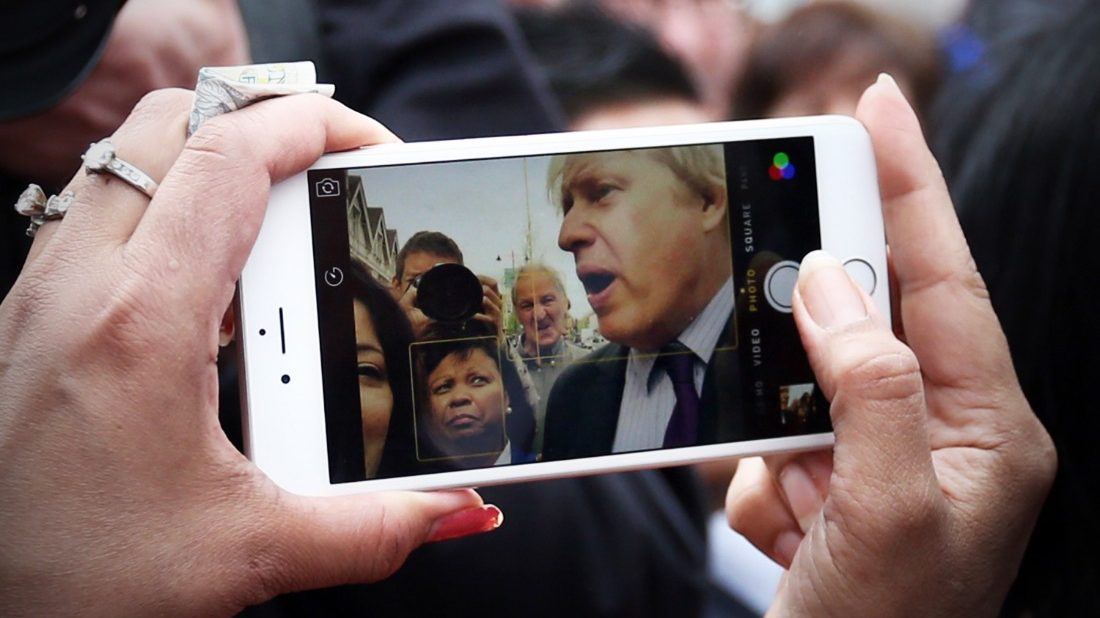In Ancient Greek mythology – the Iliad, to be exact – Sisyphus is a mortal man who tries to cheat death, only to be granted eternal punishment by the gods: for the rest of time, he is cursed to push a boulder up a hill, knowing it will never reach its top.
Rishi Sunak may be looking towards Sisyphus with envy, given his own predicament appears to be that he’s cursed to endlessly try to pass policies while Boris Johnson torpedoes them in a bid to get back into No 10.
The latest drama concerns the Northern Ireland Protocol. At the time of writing, Sunak appears to be close to having an actual improved deal agreed with his European Union counterparts – but is having to hold fire on announcing it for fear of the Democratic Unionist Party (DUP) and his own backbenchers.
Before jumping into the politics, it is perhaps worth jumping back as to what the protocol is, why it needs improving, and what’s at stake – Brexit is full of complex issues, and this particular one is at the thorniest end.
A key priority during Brexit was to maintain the peace in Northern Ireland, as secured and guaranteed by the Good Friday Agreement of 1998. A key component of that is ensuring there is no “hard border” – meaning border stations or customs checks – between Northern Ireland and the Republic of Ireland.
There are roads and commutes that cross the border multiple times in different directions, and plenty of people who live in one country and work in the other, or routinely shop in the other, and so on. A return to hard border posts would, many warned, gravely undermine the peace in Northern Ireland.
However, upon the UK’s exit from the EU, keeping that border open became a much more complex matter. Given the UK and EU could diverge in rules on product safety, tax levels, and more – plus that some UK goods could now incur tariffs when imported into the EU – an open border could risk becoming a smuggler’s paradise. The need to find some form of Brexit that could let Northern Ireland and the Republic of Ireland keep their border open without facilitating large-scale smuggling became one of the key debates of Brexit.
This situation was made still more complex when Theresa May failed to win a majority in her 2017 snap election, and so relied on a coalition with the DUP to prop up her government. One condition of the DUP’s support was that no Brexit deal could result in a so-called “sea border” between Northern Ireland and the rest of the UK. This meant in practice that there could not be customs checks on goods travelling between Northern Ireland and the UK mainland.
It left May with a dearth of options, which resulted in the infamous “backstop”. May accepted a compromise with reality – if Northern Ireland could not have customs checks on the border with the Republic, and there could also be no customs checks between NI and mainland UK, it logically followed that there could be no customs checks between the UK and the EU. As a result, the UK would need to stay in the customs union, while leaving the single market – but as a sop to the Brexiteers on her back benches, May called this a “backstop” until a magical solution was found.
Allowing the UK to stay in the customs union after Brexit was a huge concession by the EU, made in the interests of the Republic. But it was viewed as unacceptable by many Conservative Brexiteers, because it would have involved the UK remaining compliant with EU product safety rules and so on.
The result was the ousting of May and the rise of Johnson. Upon winning his landslide 2019 election, he promptly screwed over the DUP – his Brexit “solution” involved creating the exact sea border that they had so vehemently opposed. As it stands, Northern Ireland is still in the customs union, but the rest of the UK is not. Partly as a protest against this betrayal, the DUP has failed to vote in a speaker at Stormont, meaning its devolved government cannot function.
Through the Northern Ireland Protocol, it was agreed that customs checks between NI and the rest of the UK could be delayed, though we have long since busted through that deadline, because it is generally held that these checks will be unworkable, and given the DUP’s opposition to them, it would leave devolution in Northern Ireland dead in the water.
That’s the mess that needs to be fixed – and do note that it’s a mess entirely of Johnson’s making. Sunak is trying to find a fix that will mollify the DUP while still meeting the EU’s requirements. Given the intransigence of the DUP, this is a monumentally difficult task.
So it should come as no surprise that Boris Johnson is wading in, making everything much worse. Johnson’s own approach to trying to “fix” the Northern Ireland Protocol was to start pushing a bill through parliament that would “allow” the UK to rip up parts of that legally binding treaty.
That bill would do nothing to stop any changes being a violation of a legally binding treaty in the eyes of international law – it would only make it legal under UK law. The bill was viewed as extremely inflammatory by EU negotiators, and it was made clear that if it was passed there would be serious consequences on the UK (probably in the form of tariffs).
Johnson’s intervention argues that this bill acts as some kind of “leverage” over the EU – whereas in reality it acts as leverage to the EU in the same way that an environmental activist acts as a tranquiliser to Jeremy Clarkson (which is to say, not at all). Moreover, Johnson’s seemingly mild critique of Sunak’s approach serves as a signal to his supporters on the back benches not to support the deal, which leaves him uncertain of his numbers. Keir Starmer has pledged Labour’s support should any resultant deal come to the Commons chamber, but Sunak is understandably wary of trying to pass a vote with Labour support given his mutinous backbenchers.
Boris Johnson, then, is being outrageous even by his own standards – setting Rishi Sunak up to fail as he tries to fix a problem that Johnson created. Worse still, it is an issue of critical importance to maintaining peace in Northern Ireland and restoring its devolved power-sharing administration.
We know that Johnson is incapable of change, and we should not expect him to change at his advanced age – but some of those supporting him can still feel shame, and should do so at this, a new low for an ex-prime minister who long since left the moral gutter behind in his fall.




